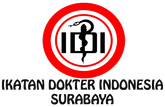Post-orgasmic Illness Syndrome: A Closer Look
Downloads
Background: Post-orgasmic illness syndrome (POIS) is a rare condition in which someone experiences flu-like symptoms, such as feverish, myalgia, fatigue, irritabilty and/or allergic manifestation after having an orgasm. POIS can occur either after intercourse or masturbation, starting seconds to hours after having an orgasm, and can be lasted to 2 - 7 days. The prevalence and incidence of POIS itself are not certainly known.
Reviews: Waldinger and colleagues were the first to report cases of POIS and later in establishing the diagnosis, they proposed 5 preliminary diagnostic criteria, also known as Waldinger's Preliminary Diagnostic Criteria (WPDC). Symptoms can vary from somatic to psychological complaints. The mechanism underlying this disease are not clear. Immune modulated mechanism is one of the hypothesis that is widely believed to be the cause of this syndrome apart from opioid withdrawal and disordered cytokine or neuroendocrine responses. POIS treatment is also not standardized. Treatments includeintra lymphatic hyposensitization of autologous semen, non-steroid anti-inflamation drugs (NSAIDs), steroids such as Prednisone, antihistamines, benzodiazepines, hormones (hCG and Testosterone), alpha-blockers, and other adjuvant medications.
Summary: This syndrome still needs more research to understand its mechanisms to obtainclearer treatment. Besides that, the clinician's awareness is needed to recognize this syndrome so that it is not misdiagnosed.
Copyright (c) 2020 Indonesian Andrology and Biomedical Journal

This work is licensed under a Creative Commons Attribution-ShareAlike 4.0 International License.

















